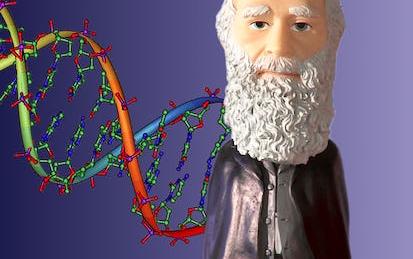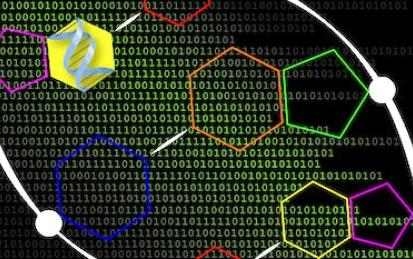

Our Courses

AIDS: Fear and Hope
The basic biology of the virus, HIV, and the disease it causes, AIDS. The economic, social and political factors that determine who gets sick and who remains healthy, who lives and who dies. The progress of scientific research and medical treatments. The reasons for hope; the reasons for fear. (To get a glimpse of some of the materials that students have been posting on the course forums, go to @AIDSFAH or #AIDSFAH.)
-
Course by

-
 Self Paced
Self Paced
-
 16 hours
16 hours
-
 English
English

Developing FPGA-accelerated cloud applications with SDAccel: Practice
This course is for anyone passionate about learning how to develop FPGA-accelerated applications with SDAccel! The more general purpose you are, the more flexible you are and the more kinds of programs and algorithms you can execute on your underlying computing infrastructure. All of this is terrific, but there is no free food and this is happening, quite often, by losing in efficiency. This course will present several scenarios where the workloads require more performance than can be obtained even by using the fastest CPUs.
-
Course by

-
 Self Paced
Self Paced
-
 13 hours
13 hours
-
 English
English

Hacking COVID-19 — Course 2: Decoding SARS-CoV-2's Secrets
In this course, you will follow in the footsteps of the bioinformaticians investigating the COVID-19 outbreak by annotating the SARS-CoV-2 genome and using the annotation to design a COVID-19 diagnostic test. Whether you’re new to the world of computational biology, or you’re a bioinformatics expert seeking to learn about its applications in the COVID-19 pandemic, or somewhere in between, this course is for you!
-
Course by

-
 Self Paced
Self Paced
-
 English
English

Understanding Plants - Part I: What a Plant Knows
For centuries we have collectively marveled at plant diversity and form—from Charles Darwin’s early fascination with stems and flowers to Seymour Krelborn’s distorted doting in Little Shop of Horrors. This course intends to present an intriguing and scientifically valid look at how plants themselves experience the world—from the colors they see to the sensations they feel.
-
Course by

-
 Self Paced
Self Paced
-
 11 hours
11 hours
-
 English
English

Engineering Life: Synbio, Bioethics & Public Policy
Synbio is a diverse field with diverse applications, and the different contexts (e.g., gain-of-function research, biofuels) raise different ethical and governance challenges. The objective of this course is to increase learners’ awareness and understanding of ethical and policy/governance issues that arise in the design, conduct and application of synthetic biology. The course will begin with a short history of recombinant DNA technology and how governance of that science developed and evolved, and progress through a series of areas of application of synbio.
-
Course by

-
 Self Paced
Self Paced
-
 14 hours
14 hours
-
 English
English

Network Analysis in Systems Biology
This course introduces data analysis methods used in systems biology, bioinformatics, and systems pharmacology research. The course covers methods to process raw data from genome-wide mRNA expression studies (microarrays and RNA-seq) including data normalization, clustering, dimensionality reduction, differential expression, enrichment analysis, and network construction. The course contains practical tutorials for using several bioinformatics tools and setting up data analysis pipelines, also covering the mathematics behind the methods applied by these tools and workflows.
-
Course by

-
 Self Paced
Self Paced
-
 30 hours
30 hours
-
 English
English

Introductory Human Physiology
Explore the fascinating world of human physiology and learn about the body's organ systems, their functions, and how they maintain health.
-
Course by

-
 Self Paced
Self Paced
-
 34 hours
34 hours
-
 English
English

Understanding Cancer Metastasis
Over 500,000 people in the United States and over 8 million people worldwide are dying from cancer every year. As people live longer, the incidence of cancer is rising worldwide, and the disease is expected to strike over 20 million people annually by 2030. Everyone has been, or will be touched by cancer in some way during their lifetime. Thanks to years of dedication and commitment to research we’ve made enormous advances in the prevention and treatment of cancer, But there is still a lot of work to be done.
-
Course by

-
 Self Paced
Self Paced
-
 6 hours
6 hours
-
 English
English

Grade 6
The subscription provides comprehensive support to Grade 6 students in Maths, Physics, Biology and Chemistry for the entire academic year, helping them build a strong foundation for their primary education.
Additionally learn 14 international languages as per the Common European Framework of Reference (CEFR).
-
Course by

-
 Self Paced
Self Paced
-
 Not Available
Not Available
-
 English
English

Grade 7
The subscription provides comprehensive support to Grade 7 students in Maths, Physics, Biology and Chemistry for the entire academic year, helping them build a strong foundation for their primary education.
Additionally learn 14 international languages as per the Common European Framework of Reference (CEFR).
-
Course by

-
 Self Paced
Self Paced
-
 Not Available
Not Available
-
 English
English

Grade 8
The subscription provides comprehensive support to Grade 8 students in Maths, Physics, Biology and Chemistry for the entire academic year, helping them build a strong foundation for their primary education.
Additionally learn 14 international languages as per the Common European Framework of Reference (CEFR).
-
Course by

-
 Self Paced
Self Paced
-
 Not Available
Not Available
-
 English
English

Grade 9
The subscription provides comprehensive support to Grade 9 students in Maths, Physics, Biology and Chemistry for the entire academic year, helping them build a strong foundation for their primary education.
Additionally learn 14 international languages as per the Common European Framework of Reference (CEFR).
-
Course by

-
 Self Paced
Self Paced
-
 Not Available
Not Available
-
 English
English

Grade 10
The subscription provides comprehensive support to Grade 10 students in Maths, Physics, Biology and Chemistry for the entire academic year, helping them build a strong foundation for their primary education.
Additionally learn 14 international languages as per the Common European Framework of Reference (CEFR).
-
Course by

-
 Self Paced
Self Paced
-
 Not Available
Not Available
-
 English
English

Knowing the Universe: History and Philosophy of Astronomy
This is an introductory level course about the history and philosophy of astronomy, the oldest science. We'll look at how humans learned to ask questions about the universe, and even before the invention of modern instruments like the telescope, learned some amazing things about their place in nature. We will start with prehistoric cultures who kept accurate calendars and move through the time of the Greek philosophers who laid down the rudiments of logic and mathematics and the modern scientific method.
-
Course by

-
 Self Paced
Self Paced
-
 32 hours
32 hours
-
 English
English

Chemical Biology
Chemical biology is a burgeoning field that has rapidly risen to prominence. This surge of interest has been fuelled by chemical biology’s applicability to understanding critical processes in live cells or model organisms in real time. This success has arisen because chemical biology straddles a nexus between chemistry, biology, and physics. Thus, chemical biology can harness rapid chemistry to observe or perturb biological processes, that are in turn reported using physical assays, all in an otherwise unperturbed living entity.
-
Course by

-
 Self Paced
Self Paced
-
 21 hours
21 hours
-
 English
English

Global Warming I: The Science and Modeling of Climate Change
This class describes the science of global warming and the forecast for humans’ impact on Earth’s climate. Intended for an audience without much scientific background but a healthy sense of curiosity, the class brings together insights and perspectives from physics, chemistry, biology, earth and atmospheric sciences, and even some economics—all based on a foundation of simple mathematics (algebra).
-
Course by

-
 Self Paced
Self Paced
-
 39 hours
39 hours
-
 English
English
Introduction to the Biology of Cancer
Over 500,000 people in the United States and over 8 million people worldwide are dying every year from cancer. As people live longer, the incidence of cancer is rising worldwide and the disease is expected to strike over 20 million people annually by 2030. This open course is designed for people who would like to develop an understanding of cancer and how it is prevented, diagnosed, and treated. The course introduces the molecular biology of cancer (oncogenes and tumor suppressor genes) as well as the biologic hallmarks of cancer.
-
Course by

-
 Self Paced
Self Paced
-
 8 hours
8 hours
-
 English
English
Medical Neuroscience
Medical Neuroscience explores the functional organization and neurophysiology of the human central nervous system, while providing a neurobiological framework for understanding human behavior. In this course, you will discover the organization of the neural systems in the brain and spinal cord that mediate sensation, motivate bodily action, and integrate sensorimotor signals with memory, emotion and related faculties of cognition.
-
Course by

-
 Self Paced
Self Paced
-
 71 hours
71 hours
-
 English
English

The Science of the Solar System
Learn about the science behind the current exploration of the solar system in this free class. Use principles from physics, chemistry, biology, and geology to understand the latest from Mars, comprehend the outer solar system, ponder planets outside our solar system, and search for habitability in our neighborhood and beyond. This course is generally taught at an advanced level assuming a prior knowledge of undergraduate math and physics, but the majority of the concepts and lectures can be understood without these prerequisites.
-
Course by

-
 Self Paced
Self Paced
-
 30 hours
30 hours
-
 English
English

Introduction to Genetics and Evolution
Introduction to Genetics and Evolution is a college-level class being offered simultaneously to new students at Duke University. The course gives interested people a very basic overview of some principles behind these very fundamental areas of biology.
-
Course by

-
 Self Paced
Self Paced
-
 25 hours
25 hours
-
 English
English

Introduction to Systems Biology
This course will introduce the student to contemporary Systems Biology focused on mammalian cells, their constituents and their functions. Biology is moving from molecular to modular. As our knowledge of our genome and gene expression deepens and we develop lists of molecules (proteins, lipids, ions) involved in cellular processes, we need to understand how these molecules interact with each other to form modules that act as discrete functional systems. These systems underlie core subcellular processes such as signal transduction, transcription, motility and electrical excitability.
-
Course by

-
 Self Paced
Self Paced
-
 19 hours
19 hours
-
 English
English

Introduction to Genomic Technologies
This course introduces you to the basic biology of modern genomics and the experimental tools that we use to measure it. We'll introduce the Central Dogma of Molecular Biology and cover how next-generation sequencing can be used to measure DNA, RNA, and epigenetic patterns. You'll also get an introduction to the key concepts in computing and data science that you'll need to understand how data from next-generation sequencing experiments are generated and analyzed. This is the first course in the Genomic Data Science Specialization.
-
Course by

-
 Self Paced
Self Paced
-
 6 hours
6 hours
-
 English
English

Epigenetic Control of Gene Expression
While the human genome sequence has transformed our understanding of human biology, it isn’t just the sequence of your DNA that matters, but also how you use it! How are some genes activated and others are silenced? How is this controlled? The answer is epigenetics. Epigenetics has been a hot topic for research over the past decade as it has become clear that aberrant epigenetic control contributes to disease (particularly to cancer). Epigenetic alterations are heritable through cell division, and in some instances are able to behave similarly to mutations in terms of their stability.
-
Course by

-
 Self Paced
Self Paced
-
 17 hours
17 hours
-
 English
English

Bioinformatic Methods II
Large-scale biology projects such as the sequencing of the human genome and gene expression surveys using RNA-seq, microarrays and other technologies have created a wealth of data for biologists. However, the challenge facing scientists is analyzing and even accessing these data to extract useful information pertaining to the system being studied. This course focuses on employing existing bioinformatic resources – mainly web-based programs and databases – to access the wealth of data to answer questions relevant to the average biologist, and is highly hands-on.
-
Course by

-
 Self Paced
Self Paced
-
 19 hours
19 hours
-
 English
English

Bioinformatic Methods I
Large-scale biology projects such as the sequencing of the human genome and gene expression surveys using RNA-seq, microarrays and other technologies have created a wealth of data for biologists. However, the challenge facing scientists is analyzing and even accessing these data to extract useful information pertaining to the system being studied. This course focuses on employing existing bioinformatic resources – mainly web-based programs and databases – to access the wealth of data to answer questions relevant to the average biologist, and is highly hands-on.
-
Course by

-
 Self Paced
Self Paced
-
 20 hours
20 hours
-
 English
English



